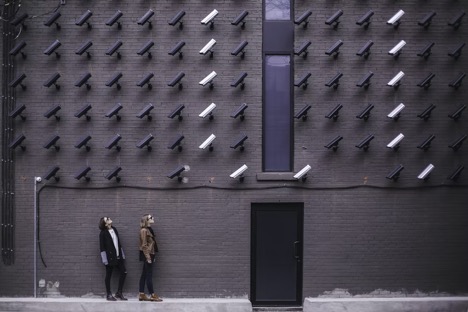The fight for gender equality is far from over. In the U.S., the overturning of Roe v. Wade — protecting the right to decide whether or not to continue a pregnancy — has undermined women’s basic right to healthcare. In Iran, feminist movements are met with violence. Transgender people can still be subjected to harmful conversion therapy in the U.K.
Overcoming these challenges requires us all to come together and voice our support for causes that matter.
However, today, most of us voice our support through digital platforms like social media and blog pages. As a result, digital privacy has become increasingly important for those who commit their lives to further gender equality around the globe.
The Importance of Privacy
Gender has long been a topic of concern for activists. However, those who advocate for gender equality are at risk of being targeted by violent hate crimes and unwanted exposure. Likewise, those who simply want to live their lives in a way that doesn’t conform to traditional gender norms often rely on privacy to do so.
This sentiment is echoed by the United Nations Special Rapporteur on the right to privacy, Joseph Cannataci. Cannataci has called for gender privacy policies to be revamped around the world to ensure that everyone can live their lives in a safe, private way. Cannataci explains, “Privacy offers protection against gender-based violence, discrimination, and other harms.”
Digital privacy is particularly important for folks who are at a greater risk of experiencing gender-based discrimination. Many people use online communities and platforms to find information and speak with allies. Without adequate digital privacy, users may have their real identity exposed along with details of their personal life and location — this is, of course, extremely concerning.
Data privacy is important for organizations that rally behind gender-justice causes, too. Organizations may be targeted by malicious actors and be exposed to attacks like remote camera hacking. Fortunately, organizations and individuals can take steps to prevent camera hacking and avoid data leaks caused by digital spying.
Reproductive Justice
The overturning of Roe v. Wade sent shockwaves through the world. The U.S., which had previously legalized abortion for all in 1973, now makes abortion a state-by-state decision. This threatens women’s safety and undermines their unalienable rights.
In a post-Roe v. Wade world, women will likely have to use digital forums and organizations to safely plan and access abortions in other states. This makes digital privacy a feminist issue, as many women are exposed to “fetishization, harassment, and threats of violence online,” during normal engagement with the communities.
Women who need to access safe abortions may be able to find help via telehealth abortions. Daniel Grossman, professor of obstetrics, gynecology, and reproductive sciences explains that telemedicine for abortion is “just as safe, just as effective [ . . . ] as compared to in-person service.”
Access to telehealth abortions further highlights the need for digital privacy. Women who seek help via telehealth abortions often need to cross state lines and drive for miles to remotely access a doctor in a different state. Once there, they need to be certain that their personal details aren’t revealed or exposed to the general public and those who would oppose their right to healthcare.
Information Control
The digital age heralded a new era for information sharing and community building. In Iran, feminists are using their digital presence to come together and spark real change in their country. In response, the Iranian government has shut down the internet and used a state-sponsored national network to collect biometric data about potential protestors.
Revoking the digital privacy of feminists in Iran should be a concern for all. Likewise, forcing digital identity cards should be seen as equally repressive as mandating physical identity cards. These decisions allow the Iranian government to exercise further control over the rights and freedom of its population and undermine all users’ right to privacy and protest.
It’s worth noting that Iranian women and feminists have not accepted their fate when it comes to gendered violence and digital repression. Some apps even help women avoid the so-called “morality police” and organizations like My Stealthy Freedom show that the feminist movement in Iran — which has burned bright for over a century — is alive and well.
As the most recent feminist uprising in Iran gains global attention, we must all remember that digital freedom is a right, not a privilege. If nothing else, the struggle of Iranian feminists against a repressive regime should serve as a reminder when the issue of digital freedom is raised in other states and nations.
Conclusion
Digital privacy allows us to push for gender justice around the globe. Ensuring that everyone can use the web without fear of being “outed” or exposed to violence is essential for movements that matter and digital freedom should be seen as a right. Likewise, those who want to campaign for greater gender justice should be able to use the web to organize rallies and freely share accurate information.

